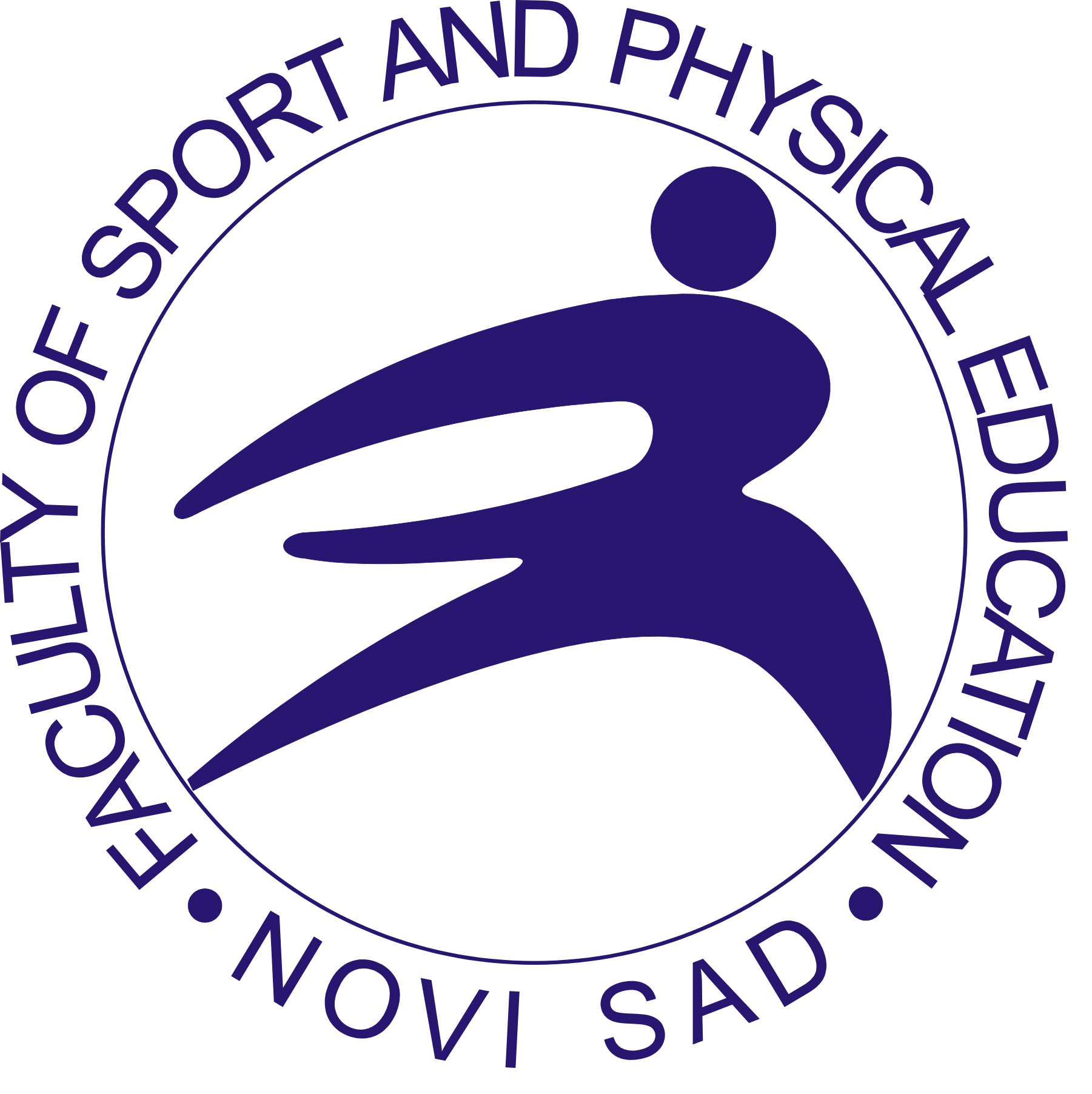Vol 12, No 1 (2020)
Published: 16.06.2020.
Authors in this issue:
Ana Penjak, Apostolos S. Theodorou, Dragan Marinković, Draženka Mačak, Elvis I. Agbonlahor, Gordan Drašinac, Hrvoje Karninčić, Iraklis A. Kollias, Ivana Milovanović, Jelica Petrović, Jovan Vuković, Jovana Trbojević, Lucija Maglica, Mariana C. Kotzamanidou, Marija Ivanović, Milica Blagojević, Mladen Mikić, Oluwaseun Susan Kubeyinje, Radenko Matić, Vassilios Panoutsakopoulos,
Edited by:
Danilo Radanović
Author guidelines
Editorial Policy
35
Issues213
ArticlesBECOME A REVIEWER
We invite you to become an Exercise and Quality of Life reviewer.
BECOME GUEST EDITOR
Exercise and Quality of Life runs special issues to create collections of papers on specific topics.
Archive
See all
Volume 18, Issue 1, 2026
Volume 17, Issue 2, 2025
Volume 17, Issue 1, 2025
Volume 16, Issue 3, 2024
16.06.2020.
Original scientific paper
Biomechanical analysis of the 2017 European indoor champion in the women’s long jump: case report
The purpose of the present study was to present a report of the biomechanical analysis of the winner of the Women’s Long Jump in the 2017 European Indoor Championships held in Belgrade, Serbia. All attempts of the examined jumper (age: 26.8 years; height: 1.76 m; mass: 65 kg), who won the competition with an official distance of 7.24 m, were recorded with a high-speed video camera operating at a sampling frequency of 300 fps. The kinematical parameters of the final steps of the approach and the take-off were calculated using with a panning analysis method. Results revealed that the best jump was accomplished with the highest individual value for vertical take-off velocity (2.94 m/s). The less variable parameter of the approach was the horizontal velocity (9.6±0.1 m/s), while the most variable parameter was the contact/flight time ratio for the last step (0.65±0.09). An inter-limb difference was observed for step frequency in the final steps. For the best jump, the examined athlete had an exact coincidence at the final step of the adjustment needed and the adjustment made in order to optimize the foot placement on the board. The examined jumper’s biomechanical parameters were in accordance with reports about her technique analyzed in major international competitions. The findings of the present report are in agreement with previous research concerning the importance of vertical take-off velocity, the accuracy of foot placement on the board and the observed reliance and asymmetries in the step parameters of the final approach.
Vassilios Panoutsakopoulos, Apostolos S. Theodorou, Mariana C. Kotzamanidou, Iraklis A. Kollias
16.06.2020.
Original scientific paper
Lipid profile alterations following aerobic and resistance training programmes among HIV- seropositive female patients
This study was designed to assess the changes in lipid profile of HIV-seropositive patients following 6week aerobic and resistance exercise training. The pretest-posttest control-group design (experimental and control groups) was adopted. Sixty female HIV-seropositive patients in stage 1 and 2 of the disease registered in University of Benin Teaching Hospital participated in the study. They were randomly assigned into control and experimental groups. The experimental group exercised for One hour, three times a week for six weeks while the control group continued with their daily routine. The baseline intensity of the exercise was 60% of maximum Heart Rate (HRmax) and 60% 1RM and it was progressed by 10% every 3 weeks. Lipid profile were recorded at baseline and on completion of 6 weeks for both groups. The hypotheses were tested with inferential statistics of Analysis of variance. The findings of this study revealed that short duration exercise training improved some of the components of the lipid profile (high density lipoprotein and triglycerides). It was therefore concluded based on the findings of this study that health professionals should recommend exercise for female HIV-infected individuals due to the health benefits. Also, human kinetics specialists should design exercise programmes suitable for this special population.
Elvis I. Agbonlahor, Oluwaseun Susan Kubeyinje
16.12.2020.
Original scientific paper
Towards recognition of peer violence in youth sports – the case of Vojvodina
The paper contains the results of the field research that the authors used in order to determine the existence and manifesting forms of peer pressure in youth sports. The sample consists of young people aged 11 to 18, who practice sport (N=536). The research was conducted in the second half of 2019 in the territory of the Autonomous Province of Vojvodina. The research results indicate that there are various forms of aggressive and violent behavior among youth, among which psychological violence predominates. The most common place for violence is the dressing room, after training or a competition. In terms of age, high-school-age children report higher level of violence victimization compared to older primary school children. The research results Introduction DOI: 10.31382/eqol.200603 The aggression and violence are global social phenomena, which have been researched in the past three decades. By examining many definitions of aggression it can be concluded that it is any “behavior that is intended to harm another person who is motivated to avoid that harm” (Allen & Anderson, 2017: 2; Bushman & Huesmann, 2010; DeWall, Anderson, & Bushman, 2011); whereas violence is, among other things, described as an “extreme form of aggression that has severe physical harm (e.g.,serious injury or death) as its goal” (Allen & Anderson, 2017: 3; Anderson & Bushman, 2002; Bushman & Huesmann, 2010; Huesmann & Taylor, 2006). testify to the fact that sport shares “the fate” of the society in which it exists and that policy makers in youth sports should take into consideration this social phenomenon as well.
Ivana Milovanović, Radenko Matić, Jovan Vuković, Milica Blagojević, Mladen Mikić, Dragan Marinković
16.06.2020.
Original scientific paper
Physical activity and quality of life in adolescents and orphans
The aim of this study was to determine the relationship between physical activity and the quality of life in secondary school pupils and in orphans. The second aim was to determine differences in physical activity habits among groups. 91 participants (age 15.4±1.2) divided in two subsamples: secondary school pupils (n=75) and orphans from Split region (n=16). The variable sample consisted of nine variables out of which four variables that questioned the quality of life by means of the World Health Organization Quality of Life questionnaire and five of them questioned subjective assessment of weekly physical activities by means of The International Physical Activity Questionnaire. Differences between groups were tested by Mann-Whitney U test. Correlation among the quality of life self-assessment variable and weekly physical activity habits in total sample and for both groups separately, were established by Spearman coefficient rank. Differences between groups were found in the variable of light physical activity intensity level (U=376.5; Z=-2,3; p=0.02). Although housekeeping activity in orphan’s institution is performed by employees, orphans participate more than peers. Intensive physical activity among orphans significantly correlates with social aspect (ρ=0.58) and surroundings aspect of the quality of life (ρ=0.62). Orphans share similar amount of physical activities with other pupils but sport has particular meaning for them. The more sports they do, the more satisfied regarding the social domain of quality of life they feel.
Lucija Maglica, Hrvoje Karninčić, Ana Penjak, Gordan Drašinac
16.06.2020.
Original scientific paper
Satisfaction of basic psychological needs of young Serbian female athletes: the role of coach and teammates
In youth sport, coach and teammates have a relevant role in an athlete's development as a player. They can create a task or ego-involving motivational climate, and directly influence athlete’s affective, cognitive, and behavioral outcomes. The purpose of this research is to examine the effects of motivational climate created by coach and teammates on the satisfaction of basic psychological needs in sport of young female athletes. The sample consisted of 192 young Serbian female athletes from collective sports (handball, volleyball, and basketball) with an average age of 13.6 years. They filled out Peer Motivational Climate in Youth Sport Questionnaire - MCYSQ (Ntoumanis & Vazou, 2005), Perceived Motivational Climate in Sport Questionnaire - 2 - PMCSQ-2 (Newton, Duda & Yin, 2000), and the Basic Need Satisfaction in Sport Scale (BNSSS, Ng, Losdale, & Hodge, 2011). Results of regression analysis showed that motivational climate created by coach and teammates represent significant predictors of the basic psychological needs: need for relatedness (35.5% of variance), need for competence (21.9% of variance), and need for autonomy – choice (10.5% of variance). Perceived task-involving motivational climate created by coach and teammates singled out as statistically significant predictors of need for relatedness and competence, while task-involving motivational climate created by teammates singled out as significant predictor of need for autonomy. Athletes who perceive coach’s and teammate’s behavior as task-involving, will have more satisfied basic psychological needs. Understanding the factors that facilitate basic needs contribute to prevention of dropping out of sports in adolescence, and athlete’s motivation and achievement.
Jovana Trbojević, Jelica Petrović
16.06.2020.
Review scientific paper
Occurrence of common mental disorders among former elite athletes
Participating in elite sports can be beneficial for many reasons – but the question arises: what is the payoff to be an elite athlete or what are the consequences of being an elite athlete in sports? The phenomenon which became popular and opens many conversations in sport and psychology circles is the occurrence of common mental disorders (CMD) in former elite athletes.
In this literature review, three electronic databases were searched: PubMed, Web of Science, ScienceDirect.
This paper summarizes eight studies which were selected following the PRISMA guidelines. The studies covered mental health disorders among former elite athletes and their symptoms: distress, sleep disturbance, anxiety/depression, and alcohol misuse, the occurrence of life events and career dissatisfaction. This literature review showed the prevalence of CMD in former elite athletes.
There were no results about the contribution to developing CMD in former elite athletes. Factors associated with the occurrence of CMD in former athletes included involuntary retirement from the sport, concussions, collision/high contact sport, increased body mass index, osteoarthritis.
Marija Ivanović, Draženka Mačak

























